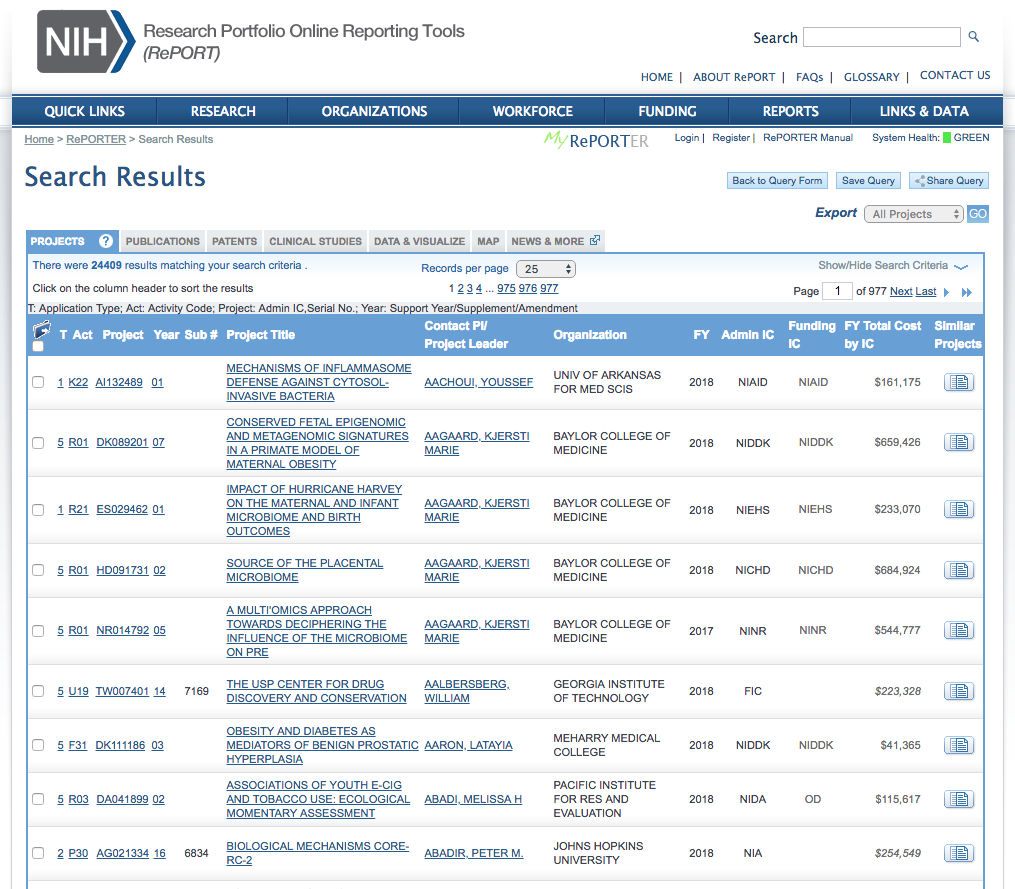Podcast: Play in new window | Download
Subscribe: Spotify | Email | TuneIn | RSS
You’ve studied hard, gotten good grades, and spent the last two years working in research labs on campus. You’re feeling ready for that next, inevitable step: applying to graduate school.
In a perfect world, the next step would be easy. You’d simply fill out an application, and submit it to every Genetics or Microbiology department in the country. They’d review your application, and you could sort through your options based on which schools offered you an interview.
But of course, it’s not that simple. Each school requires a different application form, and steep application fees can severely tax your meager bank account.
You need to do the hard work of screening up front, and only apply to a select group of programs where you can expect to be both successful and happy.
This can be overwhelming. There are hundreds of graduate schools and thousands of individual programs and departments. Where should you begin?
Luckily, Beth Bowman, PhD is here to help! Dr. Bowman is the Assistant Director of Graduate Programs in Biomedical Sciences and Co-Director, Vanderbilt Summer Science Academy at Vanderbilt University in Nashville, TN.
She has advised hundreds of students in their graduate school search, both as a recruiter and mentor. Plus, she went through the process on her own PhD journey.
In this episode, we talk with Dr. Bowman about some of the harrowing decisions applicants must make before actually sitting down to fill out forms.
For instance, it’s important for applicants to think deeply and honestly about their reasons for pursuing a PhD in the first place.
Going for the right reasons
“I think there are a lot of really great reasons to apply to grad school, and I think there are some not-so-great reasons,” Dr. Bowman begins.
“The first thing that is important is knowing that you love research.”
She recommends having a natural curiosity about how things work, or a desire to solve the puzzles and problems that tend to arise in the lab.
There are a couple of common reasons applicants list that she says could set you up for problems down the road.
“I hear commonly, ‘I want to give back to my community.’ But the type of biomedical research in our program is not going to give you the type of immediate feedback you want,” Dr. Bowman observes.
Josh adds, “I’ve seen students who really burn out or really feel they have mismatched expectations when they enter for that reason of wanting to help the community, and you really are far removed when you’re pipetting small volumes of liquid into other small volumes of liquid every day. It’s easy to lose sight of how this is helping someone right now.”
Other reasons students give that deserve some introspection are applying because you want ‘the degree,’ or to ‘take the next step.’ Some students even apply because they want to earn a stipend.
“That should not be your main reason for getting a PhD,” Dr. Bowman says. “Not only is that going to be a struggle for you, but I have to admit, when I interview students, I can tell and that comes through. And we don’t admit those students because it’s not going to be a fun journey for you to get your PhD.”
Narrowing the field
Once you’re convinced that your motivations are aligned with the reality of graduate training, it’s time to start looking at individual schools and programs.
“I remember that feeling of being overwhelmed at how many schools and how many programs there are,” Dr. Bowman recalls.
But she wants to dispel one assumption right away: “Schools that you have probably heard of as being fantastic undergraduate institutions, that doesn’t mean that they’re going to be fantastic graduate institutions for biomedical research. That’s the first thing to keep in mind: this is a totally different beast from applying to undergrad.”
When learning about which graduate institutions are best, many students look to national rankings like those produced by U.S. News and World Report. That’s a great place to start your search, Dr. Bowman advises, but “I think you should never use national rankings for scientific research as a final decision factor in where to go to graduate school.”
Another proxy for research quality is the level of funding at each institution. NIH RePORTER allows you to query regionally or by program to learn about how much funding a program has available from the government.

“It gives you a sense of how respected a school is, and also exactly how much active research is going on.” Dr. Bowman says. “And with the NIH funding levels you can actually look within a specific field of research.”
She goes on, “If you’re very focused on what sort of research you want to do – you know you want to do neuroscience or you know you want to do immunology – you can even get pretty detailed to that level. And it would be a good idea to see how much active immunology research is being done.”
“It’s about giving yourself plenty of options for rotations.”
The next step on filtering your list is to speak with active researchers about the schools and institutions they respect. Talk with your PI, postdocs, and current students about where they applied, where they collaborate, and what criteria they used to decide on a graduate school.
Lifestyle considerations
In real-estate, we know that the three most important factors are Location, Location, and Location. That’s true for many students as well.
Some applicants may want to stay in a familiar place, others will want to begin a new adventure across the country or around the world. But don’t be too quick in limiting your options.
Josh observes, “I tell students all the time – one unique feature of science graduate school is that you get to visit that place as part of the decision making process. If you don’t apply, you won’t have a chance to say ‘yes’ or ‘no’ to that place. Sometimes I wish I had put myself out there more in the application stage.”
Another common issue for choosing a graduate school is known as the Two-Body Problem. Two-body refers to choosing a program that is good for you AND for your spouse or significant-other. You need to find an opportunity that works for both parties.
Dr. Bowman recommends first brining up your partner when you are invited for an interview. At that point, the program has expressed interest in recruiting you, and they’ll be more likely to work within their networks to help your significant other find a job or admission to a different program.
“If I hear of a student who has someone else that they’re wanting to consider with this decision, I’ll make sure that I give that application a second look or that I ask the medical school or the nursing school or divinity school if they can take a second look at a candidate,” she says.
Often, the programs will work together to accommodate an applicant’s partner or family member, either within the University or with their professional network in the surrounding region.
Dr. Bowman concludes, “Knowing where to apply is a surprisingly personal journey. When you’re starting the process it can be overwhelming seeing all the different possibilities and options, but I want to encourage everyone to take the time to make sure that you have reasons for why you’re applying to certain programs, and that you know the programs well enough before you submit an application. I know that it’s a daunting process filling out all those applications, but do yourself a service of having a good handle on why you’re applying to different schools. “
To hear more from Dr. Bowman on the subject of admissions and grad school applications, check out her blog Materials and Methods.
Time in a Bottle
This week’s ethanol section comes with a flight!
In preparation for this year’s IPA-Free Fall, we’re sampling three different IPAs from DogfishHead Brewing in Delaware. We sample the 60-Minute, 90-Minute, and 120-Minute IPAs, each hoppier and more intense than the last.

